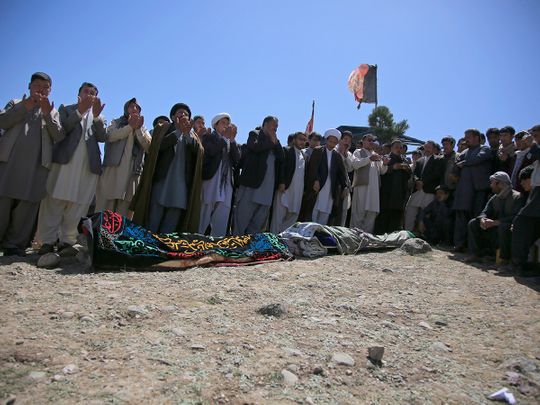
Violence has registered a sharp increase in the past few months in Afghanistan, engendering legitimate fears that Pakistan is inexorably drifting towards the eye of the same storm.
The heartbreaking series of bomb attacks inside Afghanistan last week that killed school-going girls, and ordinary Afghans across several cities including Kabul have italicised how deeply dangerous the land is likely to become in the weeks ahead. Many miles away, across the border, Pakistan, too, has suffered a string of targeted attacks against its security forces.
In Balochistan, roadside bombs and ambushes have led to several casualties among the border-keeping squads. Check-posts in coal and mineral rich districts have come under attack. Over two weeks ago, a luxury hotel saw a suicide hit involving an explosives laden vehicle.
Inter-linked violence
Apparently, there is no link between the two sides of the violence: one is coinciding with the process of US troop withdrawal; the other, in Pakistan, is an ongoing challenge that has its ups and downs. However, security sources in Pakistan worry that this is becoming a familiar pattern: violence in Afghanistan pushing up attacks in Pakistan.
If there is a link, it is hidden but there can be several reasons for it to be discussed. Afghanistan’s expanding chaos is creating an intense jostling for power among the local warlords that are creating linkages with groups operating across the border, thus empowering the dormant cells.
The other is the rise in contraband traffic and smuggling, generating a strong black economy that feeds the murky world of terror and allows it the kind of resources it needs to carry out its activities. The third reason is more complex and has to do with the geographic location of Pakistan which makes its long coastline and access to the warm waters a battleground of clashing regional interests.
Regardless of the cause, however, growing violence and increased attacks don’t bode well for both countries. As foreign troops’ footprint becomes smaller by the day, the attacks inside Afghanistan only pile up misery on a broken nation’s suffering people. It is killing the Afghans and others.
There is every possibility that instead of stepping in to stem the rot in Afghanistan, the world capitals would turn their faces and look the other way. Yes, the country remains too important for the US to be abandoned like this but the past practice of withdrawal, from Vietnam to Iraq, does not inspire confidence that Washington will run the extra mile for Afghanistan after it has withdrawn. The groups involved in wreaking havoc in the country would then become unattended gladiators fighting just for the sake of fighting without winning a prize at the end.
For Pakistan the spillover effect, which the country’s security planners have been fearing for months, has myriad costs. The areas where the attacks are taking place have long been badlands whose control has been gained at the expense of precious blood and money. Any relapse into the old status means loss of hard-won gains of stability and order.
Investment plans underway
More to the point, big investment plans are underway in the area. Attacks on security persons that are widespread and frequent create an atmosphere of fear and reluctance among the investors.
This delays implementation of the projects and jacks up the cost. But most important, it stretches the security forces internally considering that they are also involved in managing Covid-19 lockdown. Altogether, the economic and social costs of terrorism is massive for Pakistan.
The window of opportunity to bring violence at the centerstage of regional debate exists in the form of several forums and focused groups formed to create an interim peace pathway for Afghanistan. Regional stakeholders need to recognise that violence begets violence and like virus it needs no visas to travel to the areas near or afar.
Internally, Pakistan can push for greater enforcement of the writ of the law, strengthening institutions like the police which is understaffed and under-budgeted considering the tall challenge they are confronted with.
Often border forces get most of the policy attention but without managing cities and far-flung towns that produce the small pieces for the terror jigsaw to come together, normality cannot be ensured. Given the situation that prevails in Afghanistan and Pakistan’s adjoining areas, it may not be possible to create perfect peace.
Violence reduction and choking off the economy that causes it to grow will still be a sterling success.
Syed Talat Hussain is a prominent Pakistani journalist and writer. Twitter: @TalatHussain12








